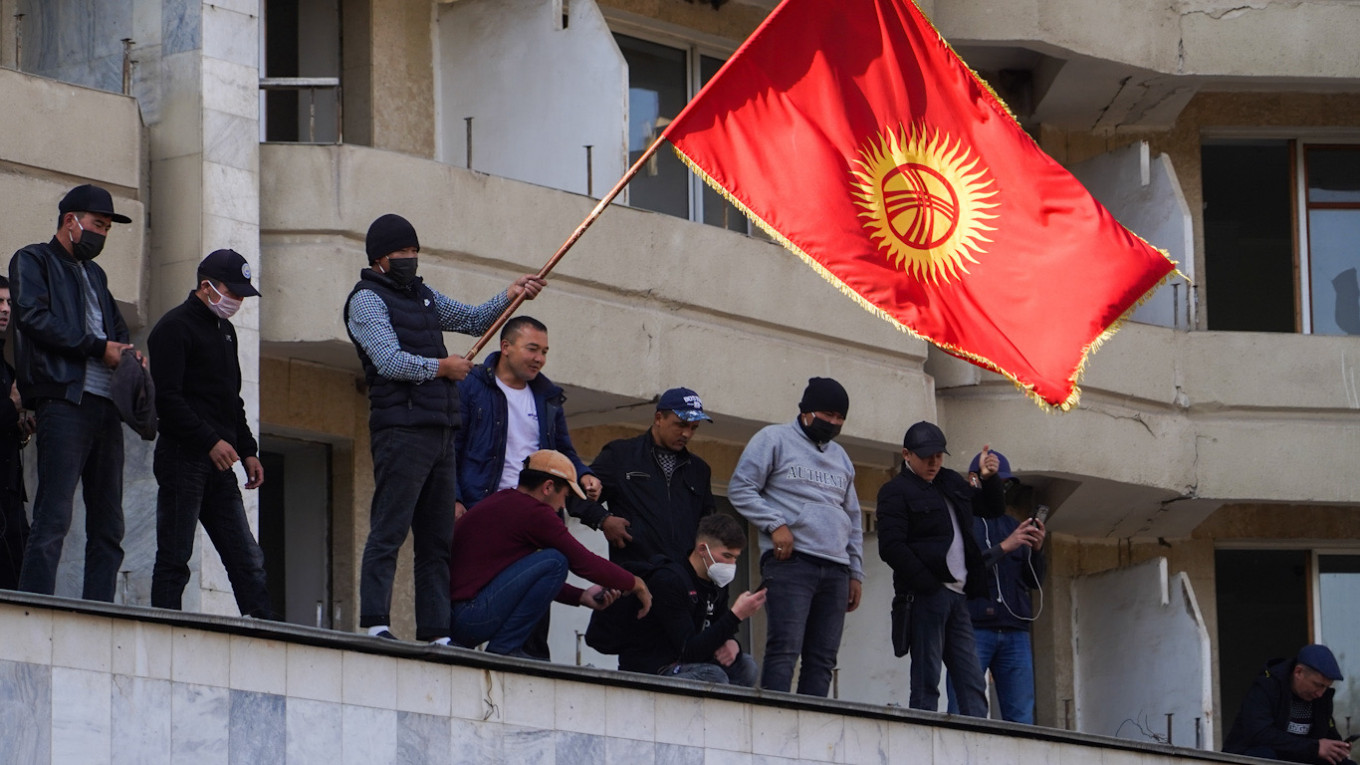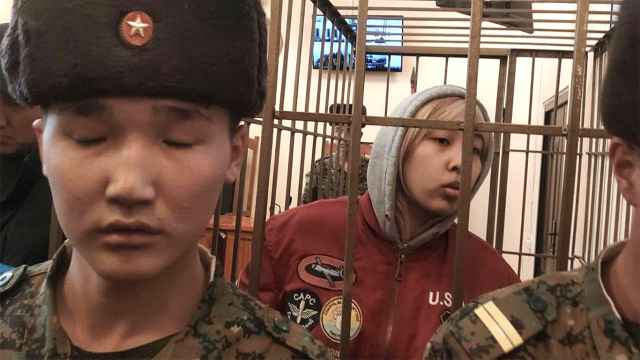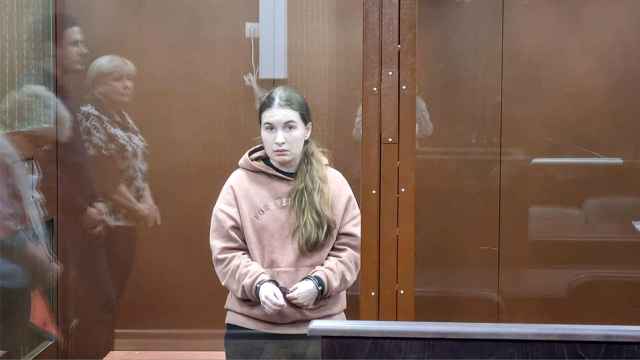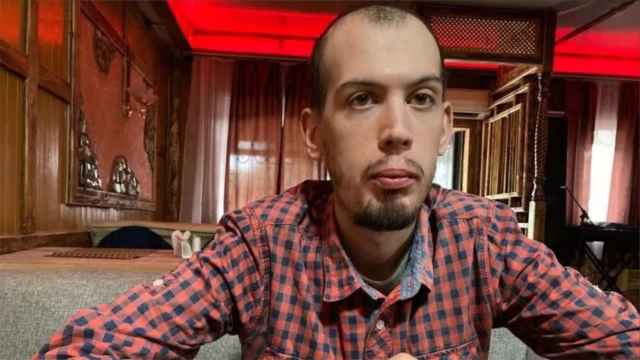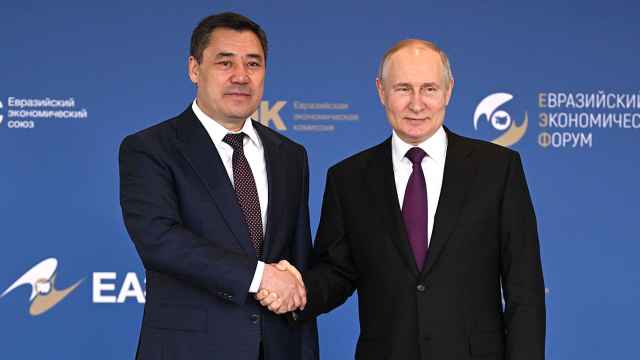When protesters in Kyrgyzstan brought about regime change in just a few days following elections that were clearly rigged, many saw it as a victory for democracy. Yet what happened can hardly be described as a democratic revolution. While uncoordinated activists and opposition figures were trying to reach an agreement, the revolution was hijacked by seasoned politicians from the old elite. The fastest and most determined of them turned out to be Sadyr Japarov. In just ten days he managed to escape from prison, become prime minister, force President Sooronbay Jeenbekov to resign, and take his place.
Despite his current reputation as a protester against the regime he has just toppled, Japarov is no stranger to the Kyrgyz ruling elite. Until 2005, he was the head of the Nurneftegaz oil refinery, which was accused of corporate tax evasion on his watch. He rode into politics atop the wave of the first Kyrgyz revolution in 2005, which brought President Kurmanbek Bakiyev to power.
Today, Japarov talks a lot about patriotism and fighting corruption, but his opponents insist that as an adviser responsible for tackling graft under Bakiyev, he was in fact tasked with concealing corrupt schemes within the president’s inner circle. Issyk-Kul Investment Bank, for example, which was used by Bakiyev’s son for money laundering, was headed by none other than Japarov’s sister, Raikul.
When the second Kyrgyz revolution of 2010 toppled Bakiyev, Japarov disappeared for a couple of months, before resurfacing in the country’s south, where together with his friend Kamchybek Tashiev, he took part in the interethnic strife between Kyrgyz and ethnic Uzbeks there. While Japarov claims he and Tashiev “prevented the further mutual destruction of two peoples,” witnesses say they helped the Kyrgyz nationalists.
Japarov’s involvement in the bloody clashes secured him a reputation as Kyrgyzstan’s chief patriot. He and Tashiev ran in the parliamentary elections of 2010 as candidates for the Ata-Zhurt (Fatherland) nationalist party, which swept to success.
Cementing his image as a patriot, in 2012 Japarov launched a campaign to nationalize the country’s biggest gold mine, Kumtor, which was being developed by the Canadians. Together with Tashiev, he led a crowd of supporters of the nationalization plan who tried unsuccessfully to storm the White House in Bishkek. Both men were stripped of their status as parliamentarians as a result, and were charged with attempting to seize power by force
The following year, there was unrest in Japarov’s native Issyk-Kul region over the gold mine, and a government official was taken hostage. Japarov, who had gone abroad two days earlier, was accused of inciting the unrest. He remained abroad and continued his political activity in exile for the next few years. When he eventually returned in 2017, he was arrested at the airport and sentenced to ten years in prison for his part in the unrest of 2013.
While Japarov was in prison, his son and both of his parents died, and he tried to kill himself. This only increased his popularity and image as a political prisoner being tormented for trying to expose the corrupt authorities.
Polls in August this year showed him and Tashiev as among the top four most trusted politicians (then president Jeenbekov was only in seventh place). So Japarov and Tashiev had high expectations for the party they had founded, Mekenchil, in this month’s parliamentary elections. But the official results showed that the party had not gained any seats, just like eleven other opposition parties. On the night of October 6, protests escalated into a revolution, and an angry mob seized the parliament and presidential administration building. Japarov was freed from prison, alongside other political leaders, including former president Almazbek Atambayev.
The other newly released politicians rushed to rally their supporters and forge alliances — but not Japarov. Instead, he made a speech in front of the remaining protesters on Bishkek’s central square, to rapturous chants of “Japarov for president!”
His Mekenchil party split away from the Atambayev-supported opposition to put forward Japarov as prime minister. At an emergency meeting of parliamentary deputies in a hotel surrounded by burly men, Japarov was voted in as acting prime minister. The deputies subsequently claimed they had been threatened, but Japarov gave press conferences insisting he had legitimately been elected, and a crowd of his supporters helped him to take the government building by force. Other protesters opposed his coup, but found themselves outnumbered.
Having established himself as prime minister, Japarov didn’t stop there. Despite the unrest, Jeenbekov had no intention of stepping down as president until new parliamentary elections had been held. But Japarov had other ideas, and forced him out on Oct. 15, seizing the initiative while his supporters were still out in force on the streets. Under the constitution, the presidential duties should have passed to the speaker of the parliament, but he passed in favor of Japarov.
Japarov has by far the biggest social media following of any Kyrgyz politician, but that wouldn’t have been enough on its own. He also had the help and support of some influential people. Amid something of a north-south divide in Kyrgyzstan, Japarov himself is from the northern Issyk-Kul region, but he won support in the south through his involvement in the interethnic clashes there in 2010, and thanks to his friendship with Tashiev, who hails from the southern Jalal-Abad region.
It’s also widely believed that the Japarov-Tashiev tandem has the support of a number of crime bosses, as well as the radical nationalist movement Kyrk Choro (Forty Knights), several of whose members ran in the parliamentary elections as candidates from Mekenchil. Tashiev, meanwhile, is known to be on good terms with Raimbek Matraimov, the former deputy head of the customs service and subject of many a corruption scandal.
Now Japarov holds the positions of both president and prime minister, and is preparing for snap elections. There’s one hitch: the constitution bars an acting president from running. Japarov has already promised to carry out electoral legislation reform that will likely remove this obstacle for him, among other changes.
To avoid losing popularity, he needs to implement his old promises, above all to tackle corruption. He has already made a point of arresting Matraimov, followed swiftly by Kamchybek Kolbayev, Kyrgyzstan’s most notorious crime boss.
Many saw the arrests as being staged, and, indeed, Matraimov was released after just a few hours. No doubt Kolbayev will soon be released too: Japarov isn’t ready to take on either of these powerful figures just yet. One of his first acts was an economic amnesty giving corrupt officials thirty days to return stolen funds to the state budget without any consequences. Together with his promises to reform the electoral system, replacing the party list system with single-member constituencies — leaving the system more open to corruption and convenient for local elites — this could be considered a signal to influential groups that the new president is open to offers.
A similar signal was sent abroad. Having called for years for the Kumtor gold mine to be nationalized, Japarov declined to do so upon finding himself in power. His excuse that “there’s no gold left there” is unconvincing.
Now, without alienating his own supporters, Japarov must persuade Kyrgyzstan’s main partners—Moscow and Beijing — that they can deal with him, despite his alarming nationalist rhetoric. Back when Bakiyev was president, he tried to play the anti-Russian card, and it ended in disaster for him. Meanwhile, anti-Chinese protests that have occurred, together with vandalism and attacks on Chinese workers, have frightened China, which could further toughen its position on collecting the debt it is owed at any time.
Japarov’s meteoric rise was fueled by a fortunate combination of two political assets: popular radical rhetoric, and connections with influential people. But it’s unlikely they can both be juggled for long. One of them will have to be sacrificed.
A Message from The Moscow Times:
Dear readers,
We are facing unprecedented challenges. Russia's Prosecutor General's Office has designated The Moscow Times as an "undesirable" organization, criminalizing our work and putting our staff at risk of prosecution. This follows our earlier unjust labeling as a "foreign agent."
These actions are direct attempts to silence independent journalism in Russia. The authorities claim our work "discredits the decisions of the Russian leadership." We see things differently: we strive to provide accurate, unbiased reporting on Russia.
We, the journalists of The Moscow Times, refuse to be silenced. But to continue our work, we need your help.
Your support, no matter how small, makes a world of difference. If you can, please support us monthly starting from just $2. It's quick to set up, and every contribution makes a significant impact.
By supporting The Moscow Times, you're defending open, independent journalism in the face of repression. Thank you for standing with us.
Remind me later.



